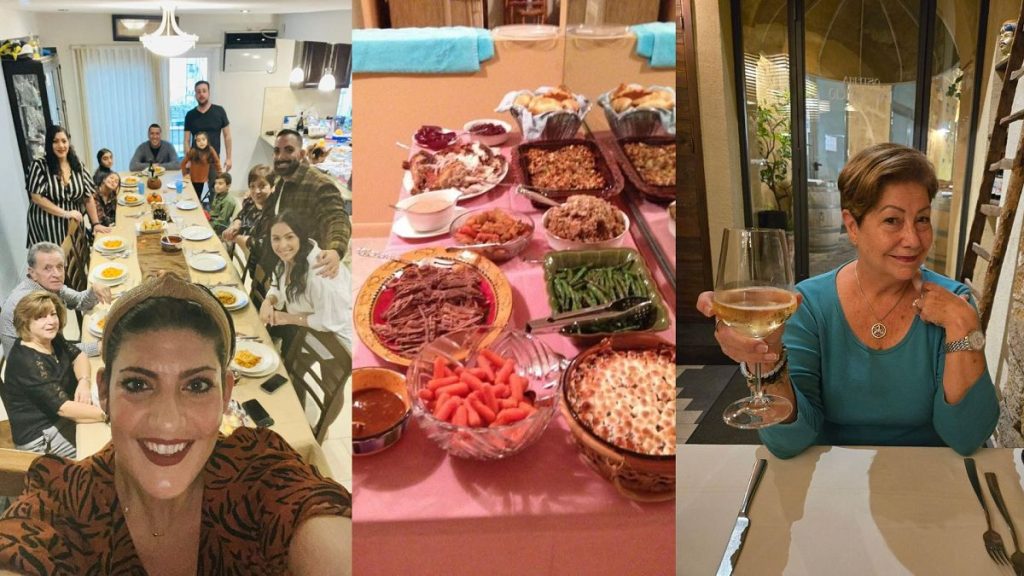As Thanksgiving approaches, many American expats around the world are grappling with how to celebrate this quintessentially American holiday while living abroad. Thanksgiving has deep historical roots, dating back to the 17th century, and for many Americans, it symbolizes gratitude and gathering with loved ones. Despite the cultural shifts that come with living in a foreign country, many expats feel compelled to uphold Thanksgiving traditions, albeit in modified forms. In discussions with American expatriates in Europe, we find a variety of approaches to celebrating Thanksgiving, reflecting individual circumstances and personal values.
One expat, Jodi, resides in Ispica, Sicily—a place that connects her to her Italian heritage. Thanksgiving was always a cherished holiday for Jodi, who remembers lavish gatherings that showcased her gratitude for family and friends, often hosting up to 40 people for dinner. However, since moving to Sicily, Jodi has encountered challenges in maintaining her Thanksgiving traditions due to cultural differences and limited access to traditional Thanksgiving ingredients. While she has not yet celebrated Thanksgiving in its entirety, Jodi has learned to appreciate local festivities, including the vibrant Easter celebrations in Sicily. By expanding her celebratory practices to embrace other cultural traditions while still valuing Thanksgiving, she hopes to eventually host a traditional dinner with American ingredients sourced from the Navy Base nearby.
Josephine, another American living in Sicily, has a unique connection to Thanksgiving through her Sicilian roots. Growing up in New York, she melded Italian traditions with American customs during Thanksgiving, often cooking conventional Italian meals with a symbolic turkey that no one really knew how to prepare. As an adult, Josephine began to embrace the essence of Thanksgiving more fully, hosting dinners that emphasized gathering friends and family. Inspired by her desire to root this American tradition in her Sicilian life, she envisions a Thanksgiving celebration that includes turkey legs and winter squash—a distinct departure from her Italian culinary background. Josephine’s eagerness to involve children in the celebration highlights her commitment to preserving American traditions, illustrating how expats can create meaningful connections to their heritage even while adapting to new environments.
John and Katy, a retired couple living in Paris, reflect on their Thanksgiving experience with a somewhat somber perspective. They both celebrated the holiday in the U.S. but expressed mixed feelings about continuing the tradition abroad. Political tensions and a perceived erosion of core American values have dampened their enthusiasm for Thanksgiving as a national holiday. Katy emphasized that the current socio-political climate has altered her perception of Thanksgiving, which once served as a symbol of unity. Though they also feel grateful for their personal relationships and familial ties, they no longer see the holiday as a true reflection of American togetherness, feeling disheartened by the polarization that they believe characterizes their home country today. Their decision to approach Thanksgiving as an intimate gathering focused on appreciation rather than national pride underscores the emotional complexities expats face during the holiday season.
Another theme emerging from the perspectives of these expats is the tension between cultural assimilation and the struggle to maintain roots. Jodi, Josephine, and the retired couple each face different degrees of cultural shock and adaptation, revealing a spectrum of acceptance and longing for past traditions. For Jodi, the beauty of Sicilian celebrations has begun to resonate deeply, prompting her to reorient her appreciation of holidays beyond the American context. Conversely, Josephine’s desire to create new Thanksgiving traditions in her adopted home illustrates a yearning to preserve her cultural identity while branching out into a new culinary landscape. The diversity in their experiences reflects a broader narrative among American expats who find themselves torn between nostalgia for home and their current realities.
As American expats navigate their Thanksgiving celebrations, they embody a blend of resilience, adaptation, and emotional reflection. For many, the holiday remains an essential touchstone, providing a sense of community and continuity despite geographical separation. However, the way in which they celebrate often evolves, accommodating the realities of living in foreign lands and engaging with new cultural practices. Whether through embracing local traditions, reinterpreting classic dishes, or forging new traditions that incorporate elements of both cultures, these expats are redefining what it means to celebrate Thanksgiving.
In conclusion, the varied experiences of American expats celebrating Thanksgiving abroad highlight the intricate relationship between cultural identity and adaptation. While some cherish the opportunity to blend traditions, others struggle with feelings of loss and nostalgia, especially in light of contemporary societal issues. Through storytelling, celebration, and a willingness to embrace change, these individuals highlight the ongoing relevance of Thanksgiving as a platform for gratitude and connection, regardless of geographical boundaries. As they navigate this cherished holiday in new contexts, American expats contribute to a rich tapestry of lived experiences that reflect both the challenges and joys of cultural exchange.









